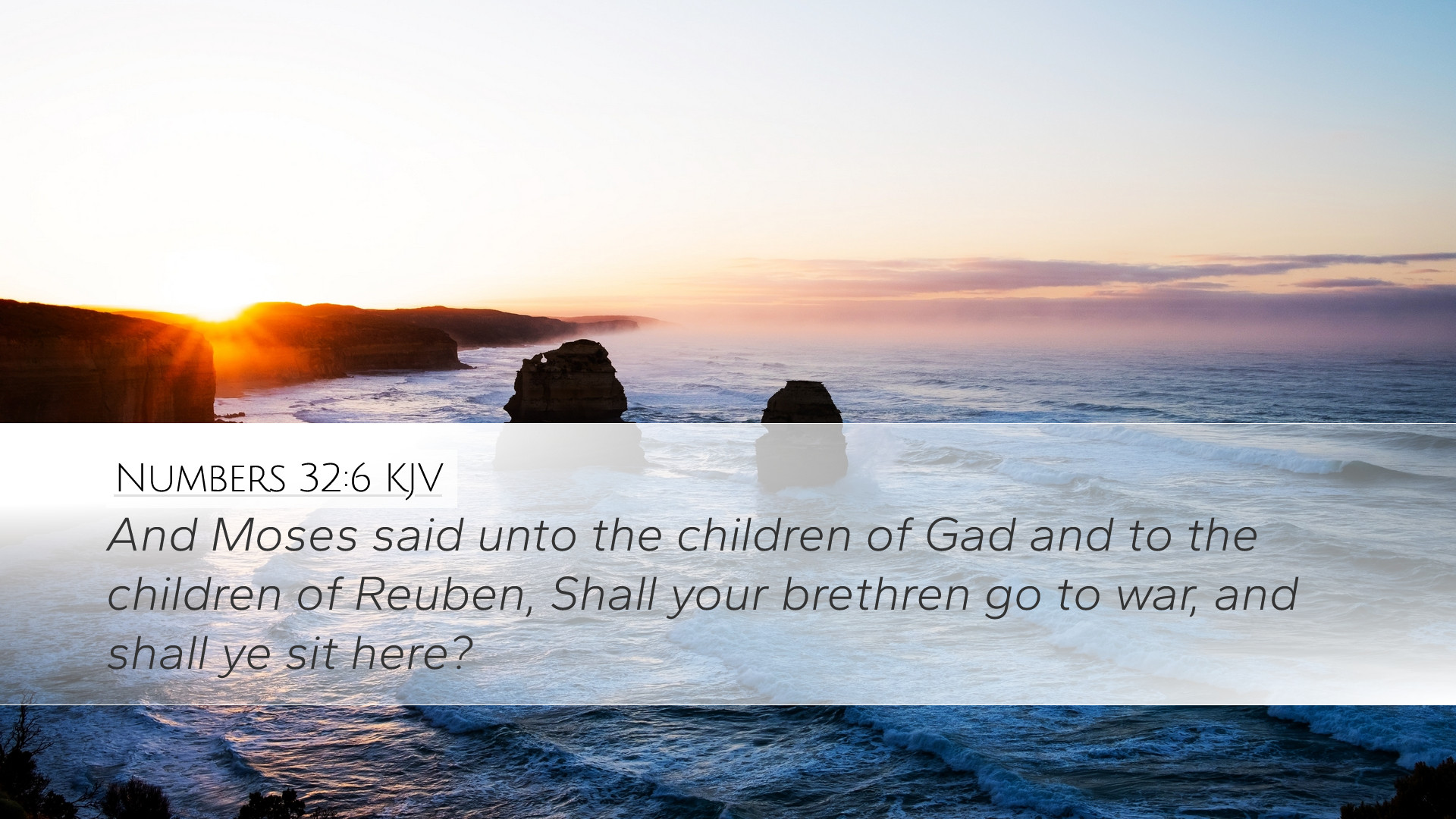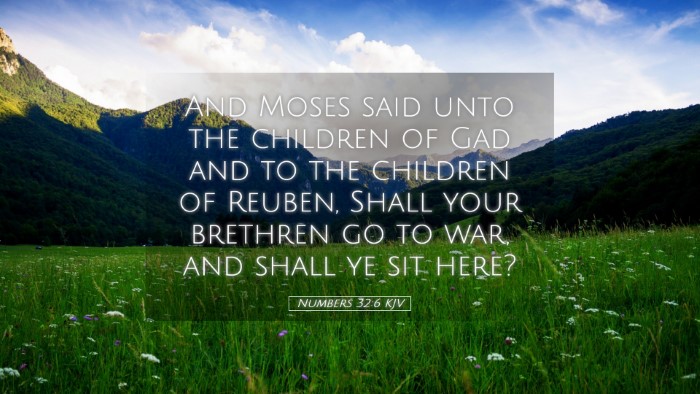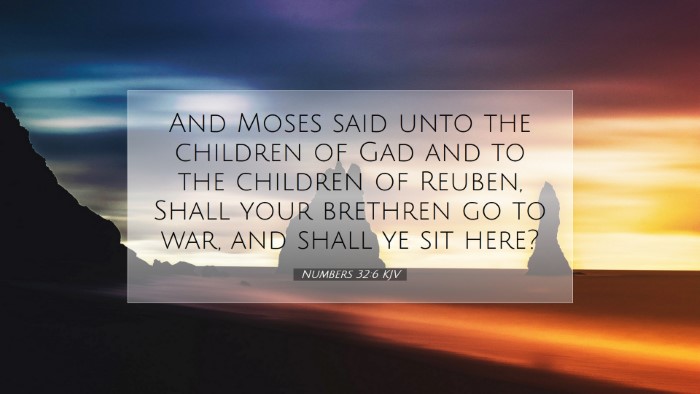Commentary on Numbers 32:6
Numbers 32:6 reads: "And Moses said to the children of Gad and to the children of Reuben, Shall your brethren go to war, and shall ye sit here?" This verse presents a pivotal moment in Israel's journey, with rich insights into the themes of duty, responsibility, and communal identity. The various public domain commentaries provide a nuanced understanding of this passage, shedding light on the motivations and implications for both the tribes of Gad and Reuben, as well as the broader Israelite community.
Contextual Background
The context of this verse is crucial to understanding Moses' response. The tribes of Gad and Reuben had expressed a desire to settle in the land of Gilead rather than cross the Jordan into Canaan. This request was made after Israel's victories over the Amorites and Bashan, lands that lay to the east of the Jordan. The land was favorable for their livestock, a significant concern given their wealth in flocks. However, this decision posed a potential challenge to the unity and collective mission of the Israelites, which is at the heart of Moses’ inquiry.
Insights from Commentators
Matthew Henry
Matthew Henry emphasizes the importance of mutual responsibility among the tribes. He notes that Moses questioned Gad and Reuben not merely out of suspicion but to provoke reflection on their obligations to their brethren. "Shall your brethren go to war, and shall ye sit here?" highlights the communal aspect of fighting for the promised land. Henry posits that the expectation of solidarity is vital for the nation's identity, suggesting that no tribe should find comfort in individual gain at the expense of collective struggle.
Albert Barnes
Albert Barnes provides a theological perspective on this verse. He points out that Moses' words reflect a deep concern for the unity of the Israelite people. Barnes states, "Moses reminds them that they are part of a greater whole..." Indicating that the tribes' enjoyment of peace and land should not come through the suffering of others. He underscores a critical point: that one's actions must consider the welfare of the community. The implications of this verse extend to numerous applications in church practices where unity and shared mission should prevail over individual desires.
Adam Clarke
Adam Clarke, with his characteristic depth, examines the sociopolitical ramifications of the tribes' decision. He suggests that the choice to stay was a double-edged sword; while it was a sound decision for cattle-rearing, "the tensions it created could negatively influence Israel's cohesion." Clarke also highlights Moses' leadership role, which includes holding individuals accountable to one another. He argues that the action of Gilead's settlements could demoralize other tribes, potentially leading to discord in the ranks of Israel.
Theological Reflections
This verse raises crucial questions about the nature of community in the faith context. The act of choosing personal comfort over collective struggle resonates with the New Testament emphasis on bearing one another's burdens (Galatians 6:2). Each commentator reinforces this theme, illustrating a vital scriptural principle that extends across both Testaments: the importance of maintaining unity and shared purpose among believers.
- Responsibility to Community: The need for each member to contribute to the community's struggles and victories is a recurring theme in scripture.
- Consequences of Division: The potential for division exists when personal interests overshadow communal duty, a lesson particularly prudent for contemporary congregational life.
- Moses as a Model Leader: His transparency in addressing the tribes serves as a model for spiritual leaders today, showing that reminding congregants of shared responsibilities is necessary for spiritual health.
Practical Applications
For pastors and church leaders, Numbers 32:6 is a call to guide congregations towards communal responsibility. Encouraging church members to see their roles as integral to the collective mission can deepen engagement and commitment. Scholars and theologians can dissect the ramifications of this communal ethos in contemporary Christian practices, exploring how individualistic tendencies can undermine community efforts.
Questions for Reflection
- In what ways can we as a community ensure that everyone's gifts and contributions are utilized for the common good?
- How can we measure the health of our community relationships in light of individual aspirations?
- What lessons can we derive for leadership in ensuring unity amid diversity of calls and passions within the body of Christ?
Conclusion
In summary, Numbers 32:6 serves not only as a historical account but as a lens through which the themes of community, duty, and leadership can be viewed. Through the insights of public domain commentators, the verse speaks forcefully to contemporary audiences, urging a reconsideration of priorities that place community ahead of individual pursuits. A faithful community thrives on mutual responsibility, echoing the foundational truth found throughout scripture.


